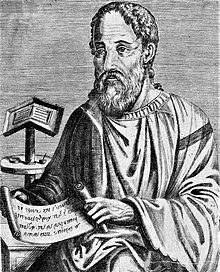I am often asked, “What happened to the Apostles and other disciples after the New Testament?” Although many of us are familiar with the lives of Christians as recounted in the Bible (especially the Acts of the Apostles and the letters of St. Paul) there are not many who know the rest of the story. Luckily, there was one man who decided to chronicle the lives of the Apostles and original disciples of Jesus. His name is St. Eusebius Pamphilus. Born in the year, 260 AD, he was one of the first historians of the Church. Thanks to him, we have accounts of the lives of the Apostles as well as many major events and persons who were vital for the formation of Catholicism. Eusebius’ book is entitled The Ecclesiastical History. It is nothing short of fascinating. The first thirteen chapters give a brief summary of Jesus Christ and His life. The second part of the book is where St. Eusebius details the actions of the Apostles after the Ascension of Jesus. He begins telling the story of St. James and his martyrdom. This is followed by a series of accounts about the Twelve Apostles, Pontius Pilate and several of the first bishops. Book II chapter one starts with an account of St. James martyrdom in the city of Jerusalem. This is followed by countless stories of heroism by the first Christians throughout the world from Syria to Gaul (modern-day France). We also hear about the exploits of the apostles in their mission of evangelization: miracles, preaching and teachings. Eusebius also tells us the popes who succeeded Peter. For example, in chapter two of Book III we read that “after the martyrdom of Paul and Peter, Linus was the first to receive the episcopate of Rome.” Another enlightening contribution of Eusebius history book is his portrayal of the many heresies that surrounded the early Church. We know that the men and women who practiced their Catholic faith in the early centuries were constantly being tempted by false teachings: Arianism, Apollinarianism, Manicheism, Sibelienism, ect. Eusebius masterfully describes these heresies and the thought of their founders. He also tells us about the bishops and priests who combatted them, the most famous of whom was St. Irenaeus of Lyons. The Ecclesiastical History ends with the Emperor Constantine and his legalization of the Christian religion around 324 AD.


